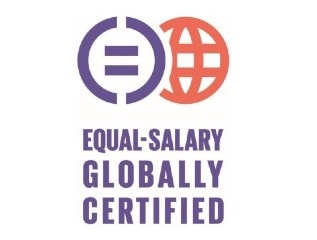Could you describe your role?
I work with stakeholders on a variety of HR topics. We also collaborate around organization design too, asking ourselves if we are set up for success with our structure and capabilities. More recently, mental health and well-being have formed a larger part of my role, ensuring that we have policies in place and that there’s real engagement with our people.

Tell me more about how you came to work in HR
I studied Psychology at University, and I didn’t really know what I wanted to do afterwards. I worked in retail for a while and happened to be in the right place at the right time when an HR receptionist job opportunity came up at a well-known retailer.
Taking that role was all about gaining experience, and I fell in love with it. At a junior level, my current job is very much about interacting with people. I really enjoy the whole process: Troubleshooting, looking for solutions for the business, and
mitigating risk. I also enjoy working closely with legal to ensure that we’re doing right by the employee but also by our policies. So that’s how I got into HR, and I haven't looked back since.
What is the most rewarding thing about your job?
This role is 100 percent rewarding, because it’s what I set out to do. I like to understand how different roles support the organization. If it’s a sales team, for example, how is each salesperson adding value? To look closely at that means that you
also need to look at different, perhaps better ways of working.
I also love the diversity of PML, and the way that is reflected in our policies. There’s widespread acknowledgment that we still have much more to do. But the desire is
there. So, for instance, there’s a menopause policy and a return to work after parental leave policy. When people come back from parental leave, they should be treated equally. A lot of maternity leave is centered around women having the baby
and then being off. If we look at the statutory leave entitlements, parental leave for men or the secondary partner or secondary caregiver is only two weeks of paid leave. But here at PML it’s enhanced.
What does gender equality mean to you?
When we talk about gender equality, we’re talking about the workplace. If I’m doing the same role as someone—male or female—I want to know that I’m being rewarded equally, and I also want to feel that my voice is heard equally.
Feeling is very subjective. Your opinion—or someone else’s—might be “better” than mine, but I still want to feel that I can raise my voice. The knowledge that I will be heard—as well as being fairly rewarded compared to my male counterparts—that is what gender equality means to me.
Is there a female figure that inspires you?
I have a career coach and I really look up to her. She’s a British-born Asian, like me, so she understands my background—immigrant parents and the kind of struggles you have with Western/Eastern culture clashes. Her career is amazing. She’s
worked in large organizations at VP level. But now she is more of a non-exec board member who invests in start-ups and so on. I look up to her. She’s worked so hard to get where she is.
Another person who inspires me is someone who used
to be my line manager. She demonstrated how to manage a group of men in a room without being loud or direct. She had a way of influencing people and getting them onside. That’s why she’s a person I look up to. Even now, if I call her,
I know she’ll provide wise counsel.
What’s your go-to book?
It’s a book about a Japanese way of being called Ikigai. It’s about purpose and how it can take years to recognise and define what your purpose is. That’s been an interesting read in terms of looking at why I do what I do at work and finding
out what I’m passionate about.
What do we look for in leaders? Empathy. I think it’s so important for a leader to have that quality.
Define a great leader—What are three traits you think great leaders possess?
What do we look for in leaders? Empathy. I think it’s so important for a leader to have that quality. When you’re steering the ship, there will be individuals in your team with varying levels of experience or who may even be struggling with problems
at home. If something impacts your performance, you need a leader who’s going to be able to support you as an individual through whatever you’re going through.
Leaders check in with their people. Just because they’re in a senior role,
it doesn’t mean they cannot speak to those in their teams who may not directly report to them. At PML, I’ve been inspired by the many leaders who really make themselves available to people at all levels within the organization. I think that’s born from a level
of empathy as well as emotional intelligence. It’s important.
Which traits does your company encourage and value?
People find time for each other. Even senior managers do this. I’ve seen it in some of the stakeholders I work with. I have so much respect for the way they have to commercially manage their function but still have time for their team. Colleagues in these roles have their time pulled left, right, and center. But they still find time for their direct reports, their whole team, the juniors, and so on.



